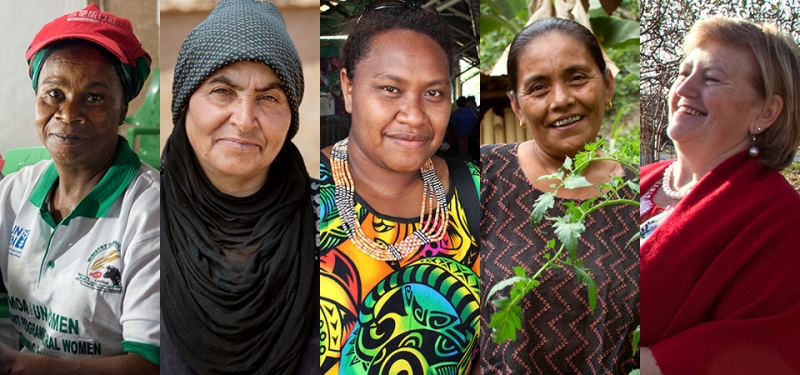
The 62nd United Nations Commission on the Status of Women (CSW62) has included co-operatives in its conclusions on achieving gender equality and the empowerment of rural women and girls.
Held at the UN headquarters in New York from 12-23 March, it recognises “the critical role played by rural women's civil society organisations, trade unions, enterprises and co-operatives in gathering and uniting rural women and supporting them in all spheres”.
And it calls on governments, UN bodies and international and regional organisations to “encourage and facilitate rural women’s entrepreneurship and expand opportunities for their enterprises, co-operatives and self-help groups”.
This includes helping rural women to diversify and increase their productivity by engaging in sustainable agriculture, fisheries, aquaculture, including mariculture, cultural and creative industries and other areas of economic activity, and to improve access to financing and investment, technology and infrastructure, training and diverse markets.
The report also recommends increased procurement from rural women’s enterprises, including co-operatives. Rural women’s skills and capacities should be boosted so they can benefit from procurement processes such as public food programmes, and can access local, national and international value chains and markets.
Another recommendation which offers a role for the co-operative sector calls for measures to facilitate financial inclusion and financial literacy of rural women and their equal access to formal financial services. It says financial institutions, including co-operatives, should be encouraged to provide access to financial products, services and information to rural women, using innovative tools and platforms, including online and mobile banking.
The commission also recommends steps to “protect and promote the rights to freedom of association, peaceful assembly and collective bargaining so as to enable rural women workers and entrepreneurs to organize and join unions, cooperatives and business associations”.
And it wants to see support for “the effective participation, decision-making and leadership of rural women in enterprises, farmer and fisher organisations, producer co-operatives, trade unions, civil society and other relevant organisations ensuring a safe and enabling environment.”
Representatives of the Alliance, including the Chair of the Gender Equality Committee, Maria Eugenia Perez Zea, took active part in the sessions at the commission. They shared the results of the coopsfor2030 campaign and demonstrated the work of co-ops at a session on achieving the Sustainable Development Goals for rural women and girls.
A side event organised by the Permanent Mission of the Dominican Republic to the United Nations focused on the role of co-operatives in the empowerment of rural women. Panellists shared case studies from the Dominican Republic on economic empowerment for rural women; increased financing for co-operatives by the government; democratisation of credit; and the facilitation of free financial education.
Also speaking at the event was Alette van Leur, Director of the Sectoral Policies Department (SECTOR) and coordinator of the ILO policy outcome area on “decent work in the rural economy”. She reflected on the role of co-operatives in: creating jobs and increasing income for women workers; improving livelihoods through the provision of basic services; and boosting women’s leadership and management experiences.
Read the Alliance declaration to mark International Women’s Day on March 8.
Source: International Co-operative Alliance (ICA)
 Welcome to the United Nations
Welcome to the United Nations